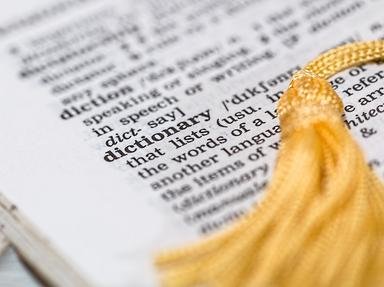
The 'F' Words Trivia Quiz
First, they're not bad words, just fundamentally unusual words that begin with 'F'. I'll give the word, you follow with the correct definition. Have frolicsome, feverish fun.
This is a renovated/adopted version of an old quiz by author Caaro
A matching quiz
by rossian.
Estimated time: 3 mins.